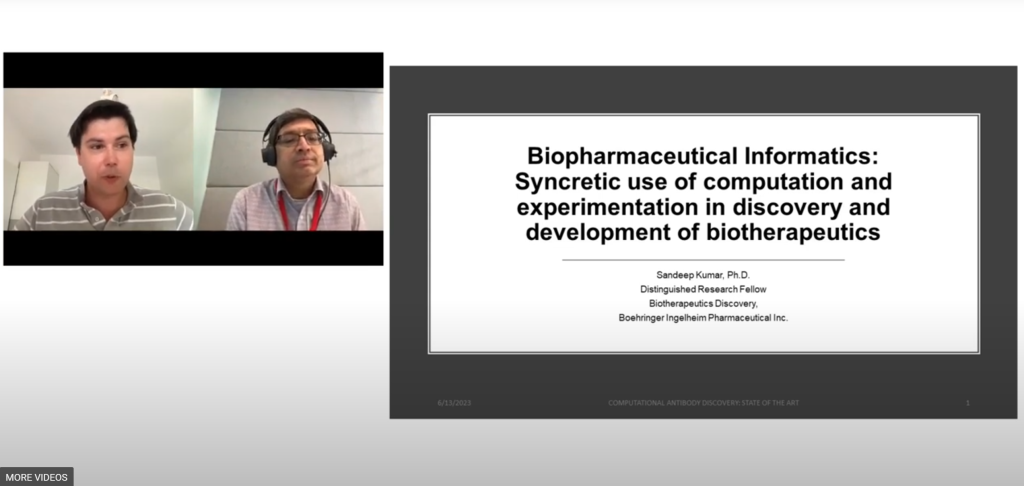Only one of the twenty five drug discovery and development programs initiated approximately fifteen years ago shall yield a drug product available in clinics today [1]. This high rate of failure in translating drug discoveries into drug products, available in the clinic, is among many factors fueling the rise of drug prices. Scientists need to invent novel ways to improve efficiency of the drug development process so that it remains sustainable and affordable. Computation can be of much help in this regard, particularly, towards discovery and development of biologic drugs. It is being increasingly realized that discovery and development processes for biologic drugs such as recombinant or plasma derived human proteins, monoclonal antibodies, antibody drug conjugates, fusion proteins and vaccines can be enormously accelerated via computation. Fruits from synergistic maturation of multiple aspects of basic research, spread over the last few decades, have made this innovation feasible. Dramatic progress has been made in our fundamental understanding of protein structure-function-aggregation relationships, physicochemical degradations, immunogenicity and pharmacology of biologic drugs, in recent decades. Simultaneously, our ability to accurately model and simulate structure and dynamics of large proteins has been substantially improving year after year. The computing power available for such research has become more affordable as well as expanded by thousands of folds, along with increased availability of informatics tools for storing, curating, analyzing and interpreting the experimental data in terms of molecular properties. Awareness about potential applications of computational tools for discovery and development of biologic drug products has also improved tremendously in recent years. All these developments have given rise to a new discipline, which I call, Biopharmaceutical Informatics. Biopharmaceutical Informatics is a vision that combines knowledge-based tools of Informatics with Biophysics-based tools of molecular modeling and simulations to create opportunities for innovation in this space. Recently, we have edited a book entitled “Developability of Biotherapeutics: Computational Approaches”, published by CRC press (Taylor & Francis) [2]. This book is the product of an industry-wide collaborative effort. The contributors, located globally, were united by the common desire to make biotherapeutic drug discovery and development more rational and affordable to all patients. This book describes several innovative applications of computation towards early stage developability risk assessments of biologic drugs. Hopefully, our book will help create awareness among the industry leaders about the novel opportunities for innovation in biologic drug development and encourage them to find their own answers to the question: Can tech help biotech?
Further Reading
1. Zurdo, J. (2013). Developability assessment as an early de-risking tool for biopharmaceutical development. Pharmaceutical Bioprocessing, 1, 1, 29–50.
2. Kumar, S. and Singh, S. K. (editors). Developability of Biotherapeutics: Computational Approaches. Taylor & Francis / CRC Press, 2015, New York. ISBN: 1482246139, 9781482246131.
Disclaimer: Opinions expressed in this article are my personal views.


